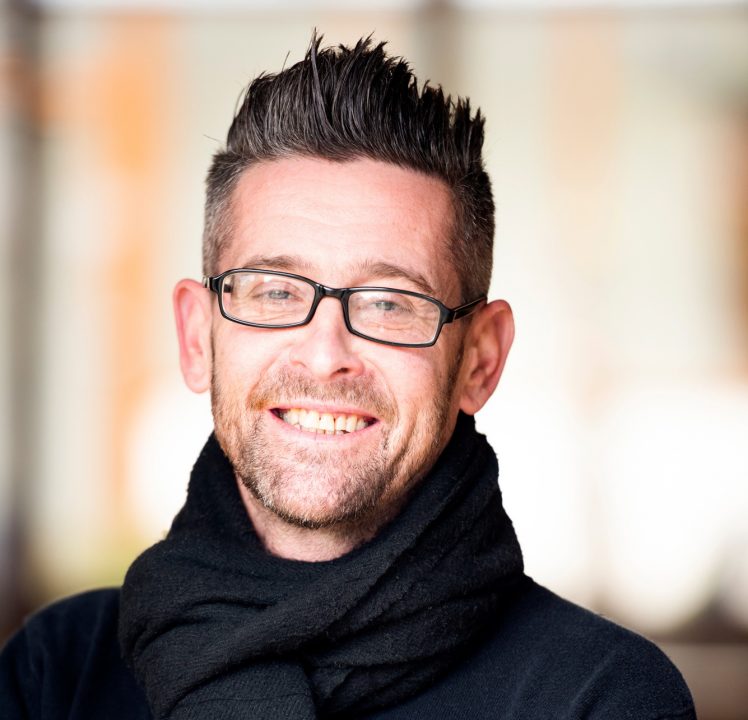“The best thing about my job is the people and the fact that we pride ourselves on being a very level, transparent organisation,” says Boo Dendy. “I can get alongside our workforce, and genuinely involve them, their ideas and their enthusiasm. They feel part of something.”
Dendy is business development manager and vice-chair at Leading Lives, a social care co-op which provides support for people with learning disabilities, autism and complex needs across Suffolk and beyond, both in the home and in the community.
“I used to work as an operations manager for a local authority, part of a provision for social care services. The LA was looking to cut provision back and put it to tender, but they also gave us the opportunity to come up with an alternative.” Dendy and his colleagues got researching, and began looking at the worker co-op model: “We effectively spun out from the local authority 10 years ago and now we’re a 100% employee-owned social enterprise, an industrial and provident society.”
The organisation offers a range of support services, including bespoke packages of personal assistance and domiciliary support (short and long term) to autistic people and individuals with learning disabilities or other complex needs.
It also runs Community Hubs and Units where people can enjoy a varied programme of activities and experiences designed to empower them to lead the life they choose – and provides a range of high-quality short breaks in units in four locations across the county.
It also offers short breaks specifically for young people (13-25) so they can enjoy time away from home with their peers and with activities specifically designed for them and runs weekly youth groups (Leading Lives Night Hubs) for young people who are autistic or have learning disabilities.
Related: Co-op councils conference offers a model for local economies
Leading Lives employs 417 people across Suffolk, with all employees having the opportunity to become members of the employee-owned co-operative. “This means employees can all be co-owners of the business,” says Dendy. “They care about how it is run and the quality of care it provides.” Any surplus made is re-invested back into services for our customers or in the local community through our Community Benefit Fund.
Over 90% of staff choose to become employee-owners, and the board is made up of employees; the MD is ex officio with two others and the rest are voted on. “The board term was originally two years. We’ve changed that to three because you really need those three years to understand and get your feet under the table,” says Dendy.

“We’re also developing a structure where we have a shareholder council that is more engaged and active. So actually, there’s a bit of a pathway towards being on the board. And we’ve also just voted that we feel it’s time that the chair of the board is a paid role outside of the organisation. But we will not be employing anybody unless they’ve got co-op values.”
It hasn’t been an easy journey. “There was a real challenge going from the public sector into the third sector,” says Dendy.
“None of us had business experience – all our experience was delivering social care – so we’ve had to find a lot of business acumen. But we have also done a lot of learning around the third sector, setting up a social enterprise and engaging with employee ownership, working with Co-operatives UK, Social Enterprise UK and the Employee Ownership Association.” In 2019 the organisation received the 2019 Public Service Mutual of the Year Award from the EOA.
Related: 40 years of CASE – Leicester’s shared vision for co-op development
Covid-19 – and the aftermath of the pandemic – has been another challenge: “Before Covid, we were in a recruitment and retention crisis. We naively thought which I think a lot of the sector did that people would be more interested and have more understanding around health and social care. I think the opposite has happened. They’re terrified of it.
“We’re in an employer’s market where we ask people to do a very difficult job for a cost of living wage – and yet you could go to a local retailer and earn a lot more with very little responsibility. And at the moment, people’s pressures are financial. So we’re finding we have to recruit to values and get into communities, reaching people who perhaps don’t even know they want to be involved in social care. But when we find the people with the right values, they’re the ones that we want to work with – not necessarily those with the qualifications and experience.”
Right now, Dendy adds, everything Leading Lives does is about collaboration, partnerships and relationships. “We have strong values and principles and we want to work with other co-ops and social enterprises, but actually, you’ve got to pull the community alongside you. And for us it’s all about co-production – about shifting our power base, about finding solutions to what people need in regards to their social care and trying to get out of antiquated care systems which are based on task and time and funding. It’s about being innovative, and it’s our values that allow us to do that.”
Burt language can still be a barrier, he says, not just for Leading Lives, but across the co-op movement.
“We’ve got to change our language, change how we tell our stories,” he says. “Those of us involved in the co-op movement, social value, employee-ownership, we’re talking jargon a lot of the time and we need to simplify that language so people understand what we’re about.
“We also need to lobby politicians and commissioners to show preference towards the third sector because I genuinely believe we deliver a better service. But we also value employees with those principles that we have – that’s what is going to sustain communities.”